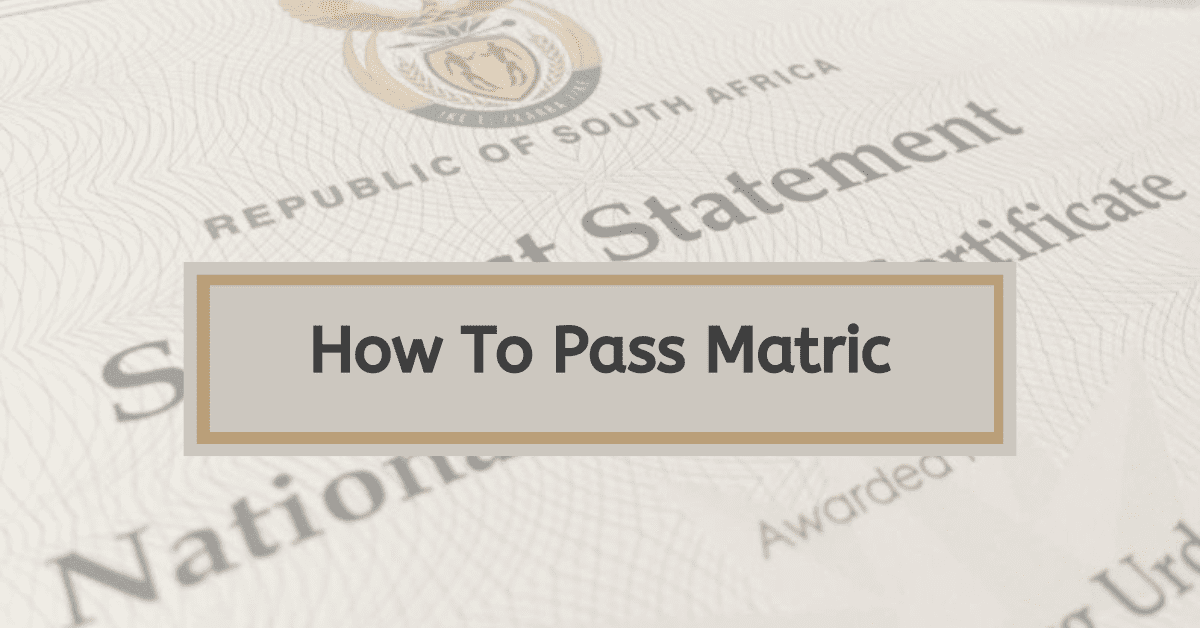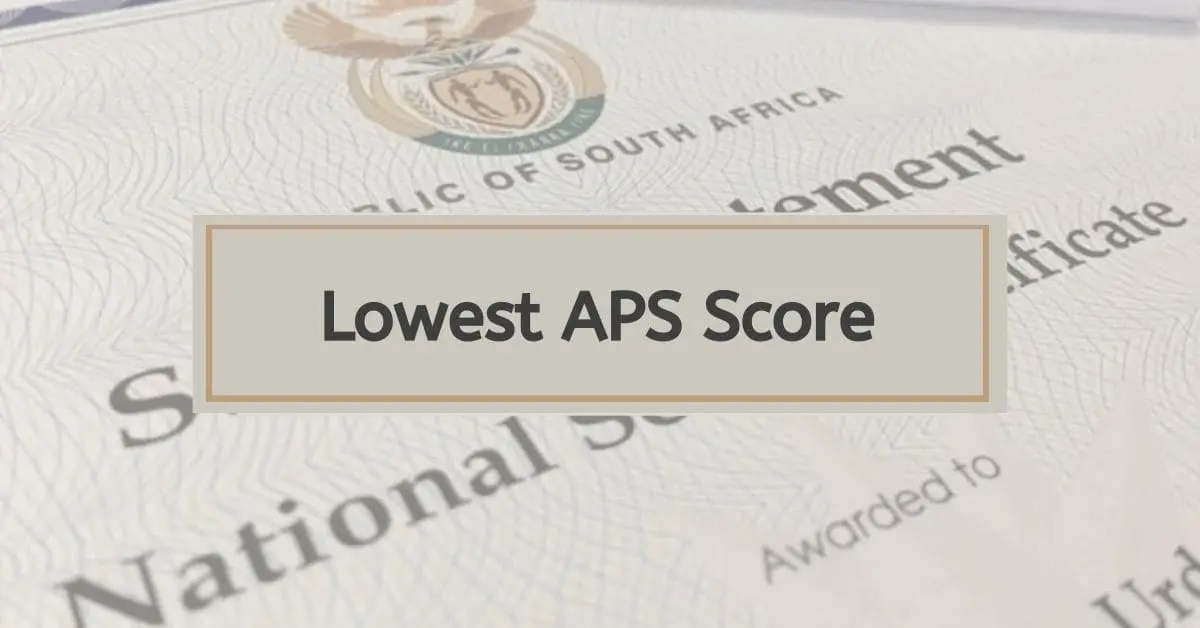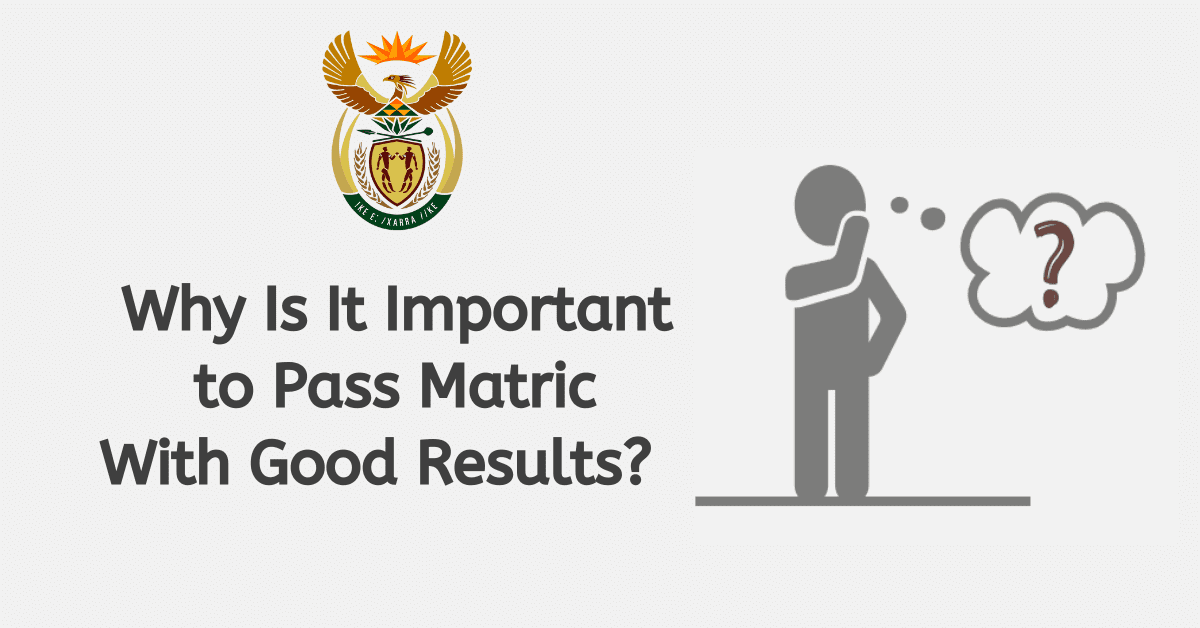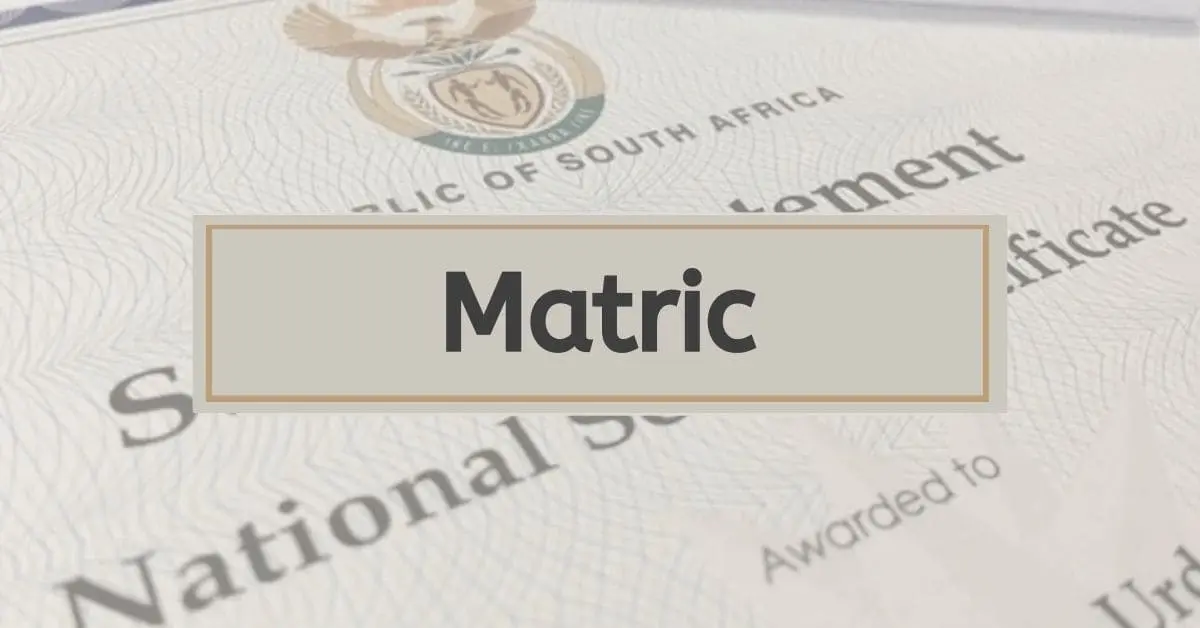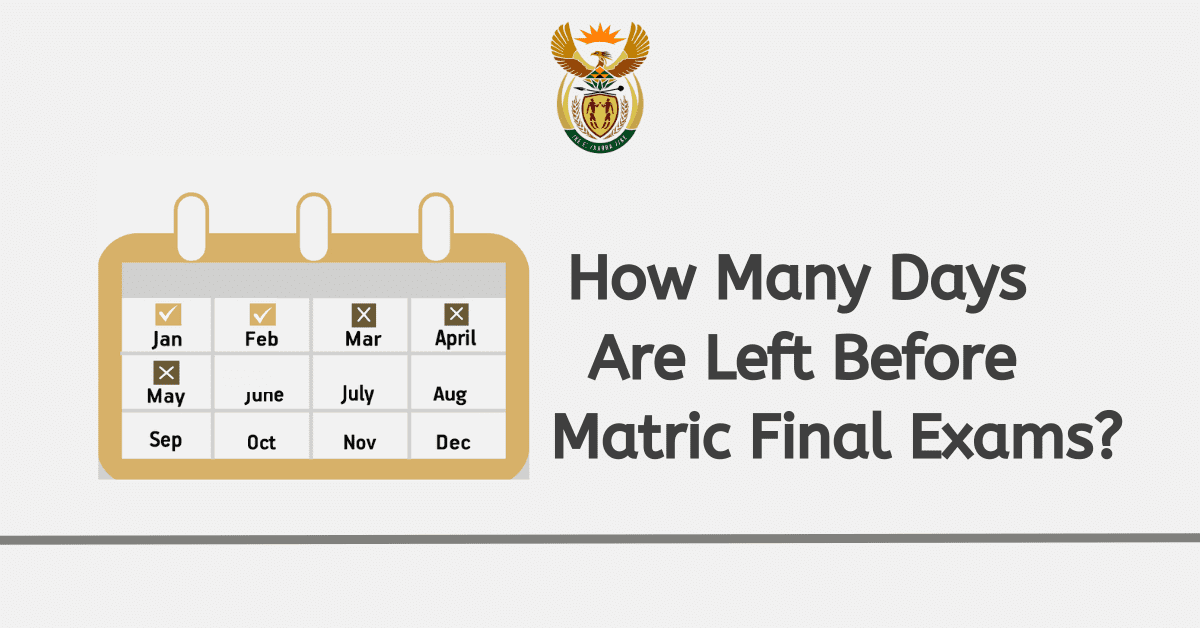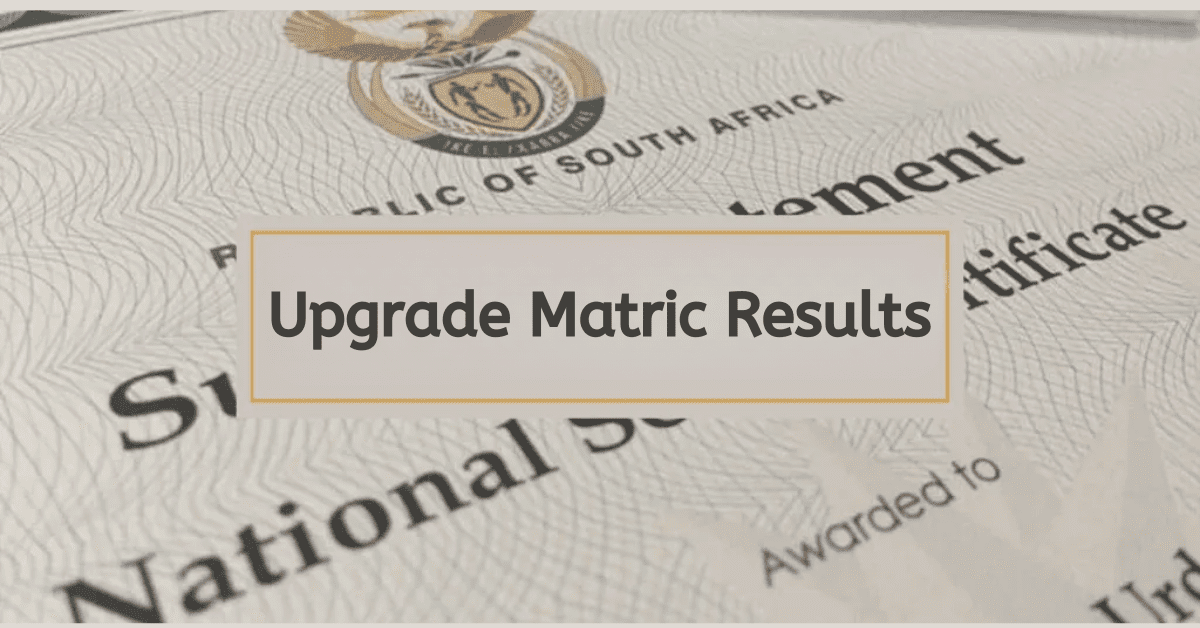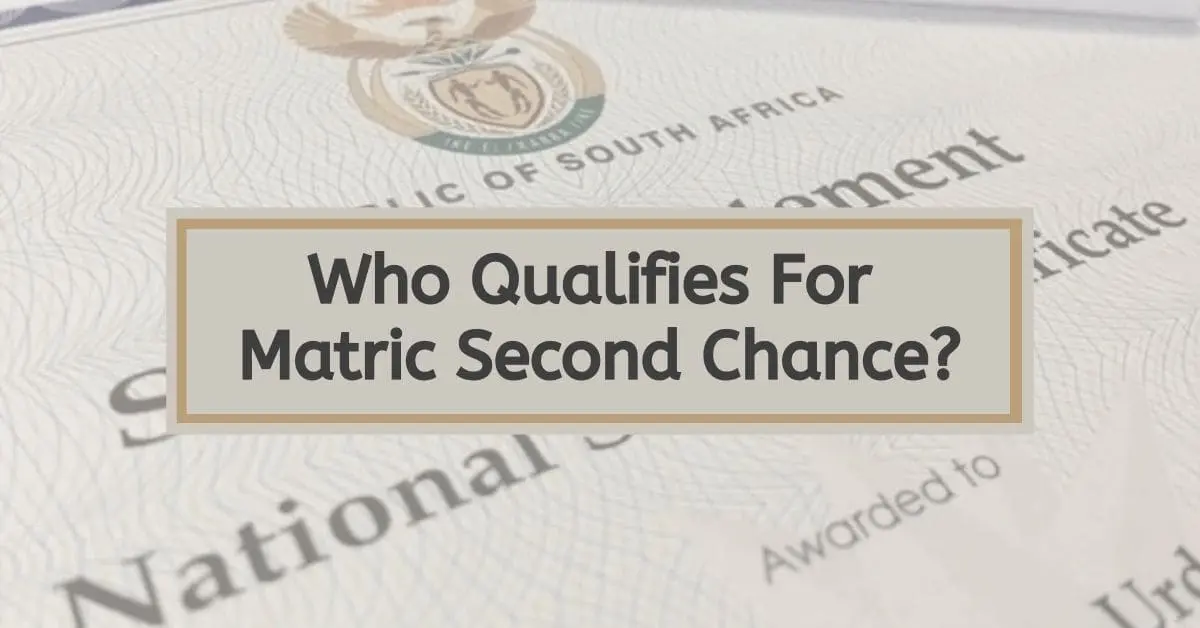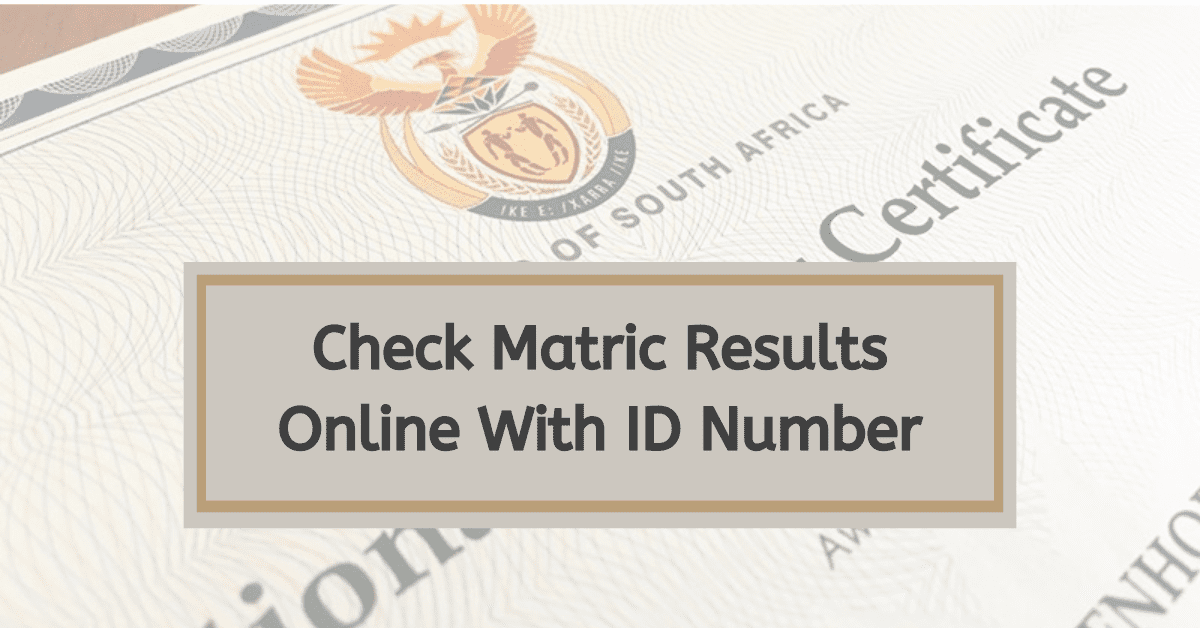In many countries, the highest point of years of dedication and effort for senior high school students comes from matric results. When completing your matric exams, you can be referred to as a matriculate or high school graduate.
These results provide individuals with bigger opportunities to excel and advance in the education level by attending university or tertiary.
In all the dealings of the matric results, the matric points play an important role. This determines the eligibility of individuals’ chances at the university. Once you have your matric points, they provide you with a short-term qualification to be admitted into the university. Although the points do not guarantee admission, they are part of the predeterminants of your chances into the university and the course you wish to pursue.
In this blog post, we will look into how these points are calculated, what most universities focus on in terms of marks, the steps to secure a chance into the university of your choice, and other key details to provide insight about matric points.
How Are University Matric Points Calculated?
Are you awaiting your matric results to check your points? Is it desired to get admission into the university? If you are part of this crew, then you need to understand what the matric points are made up of and how they are calculated. If you want to gain more insight s about how universities in South Africa calculate matric points, then you have found the right post.
Matric points are mostly referred to as Admission point scores. This is a systematic approach to assess and evaluate the performance of students after the senior high school exams. This final exam at grade 12 is considered the matric exam.
Once you are done with your matric exams, your results are converted into points. These points are calculated by assigning a value (1-7) to each of the scores you had in your subjects. The sum of all these points is put together to confirm your total matric points gained.
APS is calculated based on the marks you obtained in your Matric exams. The marks are divided into different percentage brackets, and each bracket corresponds to a specific number of points. After determining the points you have for each subject, you can simply add them up to calculate your APS. Every mark is assigned a point score ranging from 1 to 7, where 7 is the highest and 1 is the lowest. For instance, if you receive a 45% mark in Mathematics, you will be assigned a point score of 3. To calculate your total AP, simply add up the points you received for each of your 6 Matric subjects.
Which Marks Do Universities Look At?
Every university has its own selection criteria, and while this may be the case, there is a common ground for most universities.
Universities normally look at your final matric scores but are much more focused on the points accumulated for the various subjects. University admission committees place more emphasis on subjects that are closely related and reliant on the field of study. For example, if you are applying for a math-related course like engineering, the university will be more concerned about the score of your mathematics than history.
At the end of the matric exams, universities considered the total matric points for all 6 subjects before going the extra mile to get the percentage scores for the subjects.
How Do You Get Accepted Into A University?
Getting into the university is not an automatic selection. Although there are systems put in place to reject and accept people based on particular criteria, there are certain relevant things to do.
Making it in the university involved a multiconnected approach. Aside from having good APS, the university also considered letters of recommendation, other activities like sports, personal statements, distinction in certain subjects, and sometimes entrance exams.
To make it into a university, you must first understand the requirements of that particular university and what qualifies you to pursue that course.
In all these, there are a few rules to look at that can push your chances of getting into the university,
- Getting a good APS score can increase your chances of getting admission
- Rewriting or upgrading your matric exams can increase the chances of getting accepted into the university
- Following the protocols and application process of the university can increase the likelihood of being accepted
- Prompt payment and document submission can be another part of helping you gain admission into the university.
What Is The Highest APS Score?
APS scores are assessments that use numbers to measure the scores of different topics. Each exam is assigned a number based on its percentage range. The percentage score is represented by a numerical value. Exam scores can range from 0 to 100%, and the specific number can vary between 1 and 7.
The highest exam score is 7. If you take six exams and score seven points in each subject, you will have 42 points. The APS score of 42 is the highest achieved, considering that it is based on the results of six subjects taken at the end of high school.
What Is The Lowest APS Score?
Students in South Africa must score 14 points to pass Matriculation.
The APS score is used as a standard for eligibility, but each university has its own admission requirements.
The minimum standardized APS score is 14. Others may have less than 14 points.
The minimum APS score for tertiary admission is 14; anything below that will not get you in.
However, some people have only 6 points from each of the 6 subjects written, with 1 point from each of the subjects.
What Can I Do If I Do Not Meet The University Entry Requirements?
If a student doesn’t meet university admission requirements, there are options. Some colleges provide a foundation or bridging programs to help students achieve standards. Students can appeal their application, improve their grades, or explore diploma programs.
There are various alternatives for those who want to attend university but don’t match the standards.
An access exam will be given to applicants who do not meet admission requirements. Depending on assessment findings, these applicants may be able to participate in an extended program to graduate with the same degree as other students. A three-year curriculum will take a student four years. Recognition of Prior Learning, which includes relevant work experience, is available to mature learners. Recognition of Prior Learning (RPL) is a formal procedure of measuring and acknowledging skills, knowledge, and competencies obtained through work and life.
